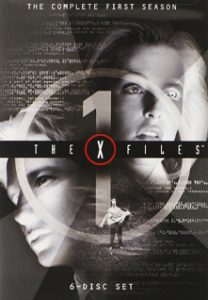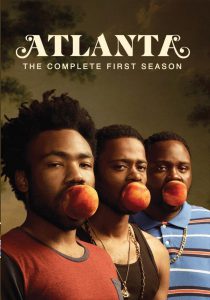I put off sampling the first hour of “Atlanta” (10 p.m. Tuesdays on FX) for a couple weeks because I knew I’d have a tough time watching police beat up an unarmed man, which happens in the second episode of this ultra-realistic half-hour dramedy. Indeed, it is tough to watch, but it’s so artfully staged, and says so much without saying anything (in dialog) that it’s hard to look away from this pitch-perfect show.’
In the scene, an obviously troubled man – a regular at the police station – spits urine (no, that’s not a misphrasing) on a cop. Although he’s clearly not a threat, the cops beat the living s— out of him. The people in the waiting room – including main character Earn (“Community’s” Donald Glover, also the show’s creator) – observe, mildly curious, in a way that says this may not be an everyday occurrence, but it is at least a weekly occurrence.
The world is split into two groups of people: 1) Those who exist in their local society and see it as the normal state of life, and 2) those who see it as supremely messed up. Earn (and Glover himself, and Atlanta native) is in the latter category. The first two episodes are peppered with moments that have nothing to do with the plot of Earn trying to establish a management position with his cousin, rising rapper Paper Boi (Brian Tyree Henry). As Earn sits on a bus, a man in a suit demands that he take of bite of his sandwich. In the waiting room of the police station, a couple chats over the top of Earn, who offers to move; the man takes the offer as a threat. It’s hard to be polite when politeness is seen as an incitement to violence.
In addition to the police station beating, “Atlanta” also features gunplay in the opening scene, when Paper Boi fires a gun in a conflict with a vandal who smashed his side-view mirror. We don’t get all the details, but apparently no one was hurt, as the rapper is charged with disorderly conduct and released.
But it’s also darkly funny, featuring those non-sequitur moments and at least two characters who speak in an inner-city Atlanta dialect so thick that subtitles would’ve been helpful. Paper Boi’s (apparent) assistant Darius (Keith Stanfield), in addition to being indecipherable, also makes (perhaps drug-addled) statements that make no real-world sense, such as “Do you mind if I measure your tree?”
“Atlanta” reminds me a lot of another FX show, “Fargo.” Although there’s not much in common between the cultures of 2016 Atlanta and 1970s and ’80s Minnesota, they do share the trait of having distinct conventions and ways of speaking that are almost alien to an outside observer.
“Fargo’s” violence is stark, but a viewer is protected from it because it takes place in the past and none of the characters are a complete audience surrogate.
Earn, though, is very much the audience surrogate – a man who was born in the wrong place at the wrong time and has the wrong economic status (he’s almost broke). On “Fargo,” people want to carve out simple, contented lives. On “Atlanta,” Earn wants to climb the ladder. In the first hour, he achieves one success: Using the payola system, he gets Paper Boi’s single on local radio. (On a lesser show, I’d assume this is an anachronism. But “Atlanta” is so detail-oriented that I’m going to assume radio play still is important in neighborhoods that lag in technological advancement and upward mobility.)

That’s followed by a failure: Earn gets arrested and has to be bailed out by his disappointed girlfriend (and mother of his child) Vanessa (Zazie Beetz). It wasn’t his fault (we aren’t even told what he was charged with), beyond the fact that he chose to spend time with his cousin in order to lock up the management job.
“Atlanta” successfully portrays the trapped feeling that comes from trying to climb a ladder whose bottom rungs are rusty and dangerous. As viewers, we just hope there’s some way Earn can find a way out (like Glover did). In the meantime – making the series more palatable – the bizarre real-world touches make “Atlanta” a place I don’t mind visiting on TV, even if the show is the worst possible travel brochure for the city.

